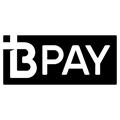
Personal super contributions
Personal super contributions are voluntary contributions you make towards your super balance from your take home pay or savings.
Personal contributions may allow you to help your super balance grow.
Are you eligible to make personal super contributions?
You may be eligible to make personal super contributions (and may do so without adverse tax consequences) if:
Concessional contributions (before-tax contribution)
- you are under the age of 67 or are 67 -74 and met the work test*; and
- you have not gone over the current concessional contributions cap of $30,000, or higher if you are eligible to carry forward unused concessional contribution cap amounts from prior financial years.
*To meet the work test you must be gainfully employed (i.e. employed or self-employed for gain or reward) for at least 40 hours within 30 consecutive days in the financial year the contributions are made. If you fail the work test, you may be eligible for the work test exemption, which is only available once. To be eligible you must have met the work test in the previous financial year and have a total superannuation balance below $300,000 at the end of the previous financial year.
Non-concessional contributions (after-tax contribution)
- you are under the age of 75;
- you have not gone over the non-concessional contributions cap (currently $120,000, which may be higher if you are eligible to bring forward future years’ amounts); and
- your total super balance on 30 June 2025 is less than $2 million.
A super fund can also accept personal contributions from you if you are age 75, if the contributions are received by the 28th day of the following month to when you turned 75. For example, if your birthday is the 1st January, the contribution must be received by the 28th February.
Keep in mind that if you are a sole-trader or self-employed, it's likely that you won’t be able to make employer contributions. It’s worth familiarising yourself with the super contribution rules that apply to your situation.
Potential benefits of personal super contributions
There are many reasons why you might consider making personal contributions, including:
- Growing your super balance: The more money in your super account, the more that may be invested by your fund. Over time, your balance may grow faster as you’re earning returns on a larger amount (like a ‘snowball effect’).
- Government co-contributions: You may qualify for government co-contributions by making non-concessional contributions. This means a potential boost of up to $500 for your super from the government, if eligible.
- Claiming tax deductions: You could receive tax deductions for making personal super contributions which would be concessional contributions, if eligible.
Tax considerations
If eligible, you may qualify for a tax deduction for making a concessional contribution. This reduces your taxable income for the financial year and means you could potentially pay less tax. The super fund will pay tax of up to 15% on your concessional contributions.
Any money your super earns from your contributions are generally:
- taxed at 15% if you’re in the accumulation phase, including a Transition to Retirement pension; and
- not taxed if you’re in the retirement phase. If your super balance exceeds the transfer balance cap, the excess will be taxed.
Just remember, there are contribution caps and going over them could mean paying additional taxes on contributions.
When you reach the age of 60 and take out your contributions (and any earnings as a benefit), you don’t have to pay any tax on it. Before age 60, tax generally applies at concessional rates.
How to claim a tax deduction for personal contributions
If you want to claim a tax deduction on your personal contributions, here’s how to start the process. You’ll just need to fill in and send your super fund a valid ‘Notice of intent to claim a deduction’ form before you lodge your personal tax return. It is important to note that the fund must also have acknowledged receipt of the notice before you lodge your personal tax return.
Keep in mind that if you claim a tax deduction on your personal contribution, this becomes a concessional (before-tax) contribution. The contributions that you claim a tax deduction on will not be eligible for a government co-contribution and they will be taxable in the fund. These are also subject to the concessional contribution caps.
Are you a Rest member?
Find the form by logging in to MemberAccess and clicking on ‘Want to claim your super on tax?’.
How to make an after-tax super contribution
To make a one-off or regular after-tax contribution towards your super you can use BPAY or the direct payment method.
Deciding whether to make a personal super contribution is a personal decision that will depend on your financial circumstances. Consider chatting to a financial adviser for more information.

BPAY®
1. Log in to the Rest App or MemberAccess to find the BPAY details unique to your personal account.
- Rest App: Go to Menu > Make a contribution > BPAY.
- MemberAccess: Go to Member > Payment methods > BPAY
2. Make a one-off or regular payments from your bank account. Make sure you use the BPAY details associated with member contributions.

Direct Debit
Organise regular payments from your bank account or financial institution through the Rest App or by completing and sending the Direct Debit form.
- Rest App: Go to Menu > Make a contribution > Direct Debit.
- Direct debit form: Download and email your completed form to Rest
® Registered to BPAY Pty Ltd ABN 69 079 137 518
Need help?
If you’d like to speak to someone to understand more about making personal contributions, our team of Super Specialists can provide you with support and additional information. You’ll then be able to book in for an appointment with a Rest Adviser* if you need more help.
*Rest Advice is provided by Rest staff (Rest Advisers) as Authorised Representatives of MUFG Retire360 Pty Limited ABN 36 105 811 836, AFSL 258145 (Retire360). Rest Digital Advice is provided by Retire360. Rest Advisers are paid a salary and do not pay or receive commissions or fees for advice provided to you. They may receive a performance related bonus that takes into account the financial services provided. Rest Advice may be accessed by members without incurring additional fees for simple advice on your super account. If you need more complex advice from a Rest Adviser you’ll be charged a fee which will vary depending on the complexity of the advice and will be agreed with you before advice is given. You can obtain a full copy of the Rest Advice and Retire360 Financial Services Guide at rest.com.au/pds or by contacting us.
